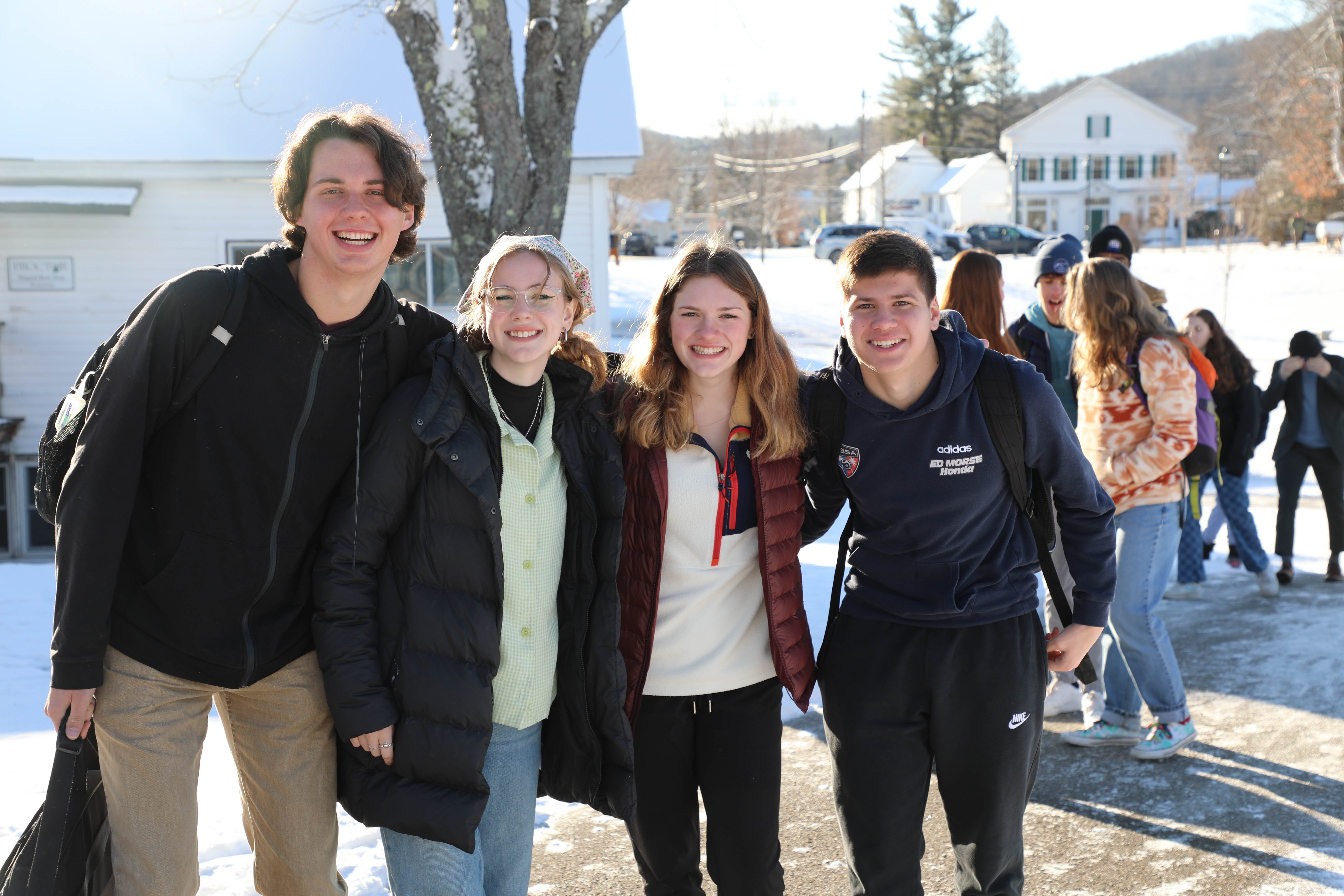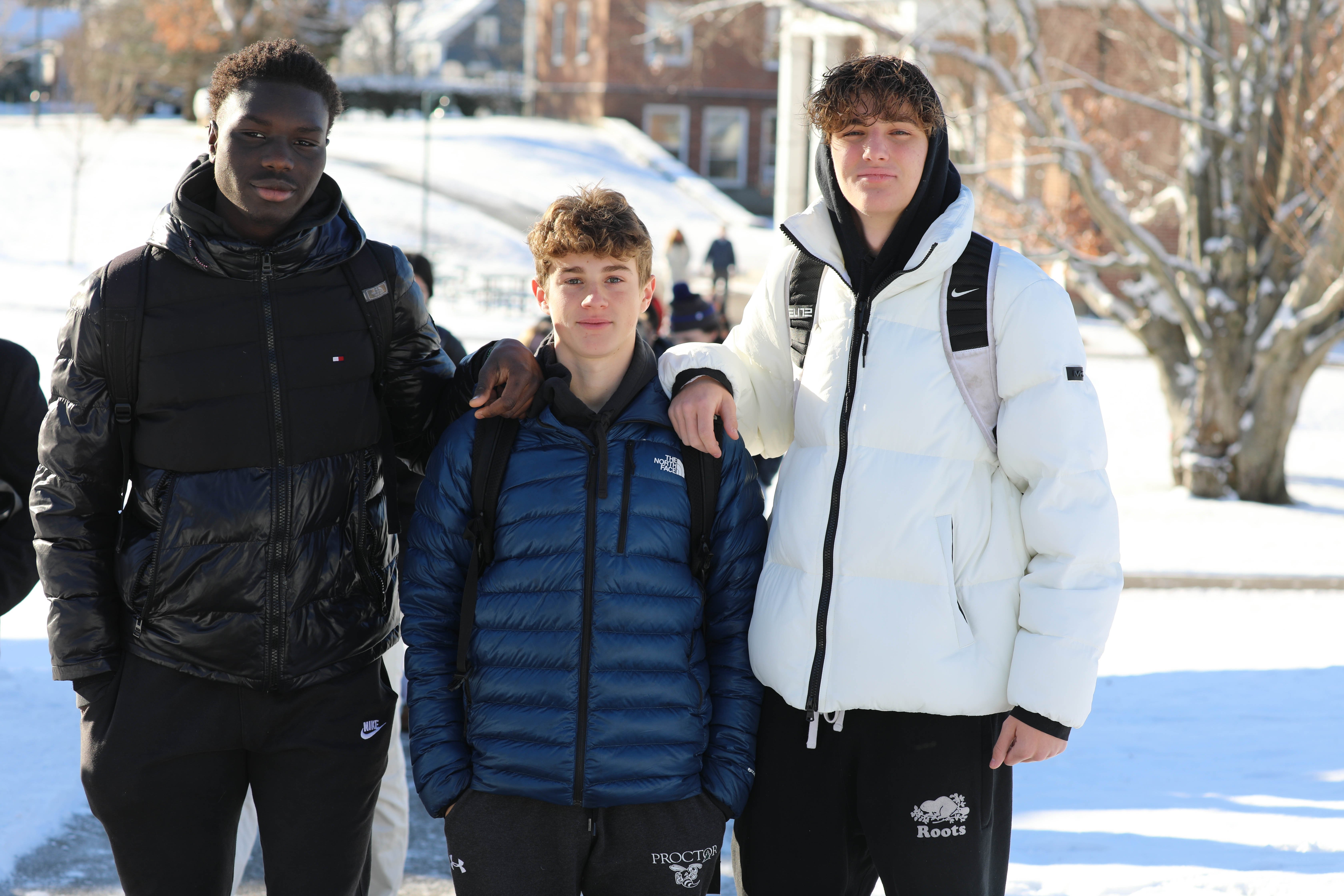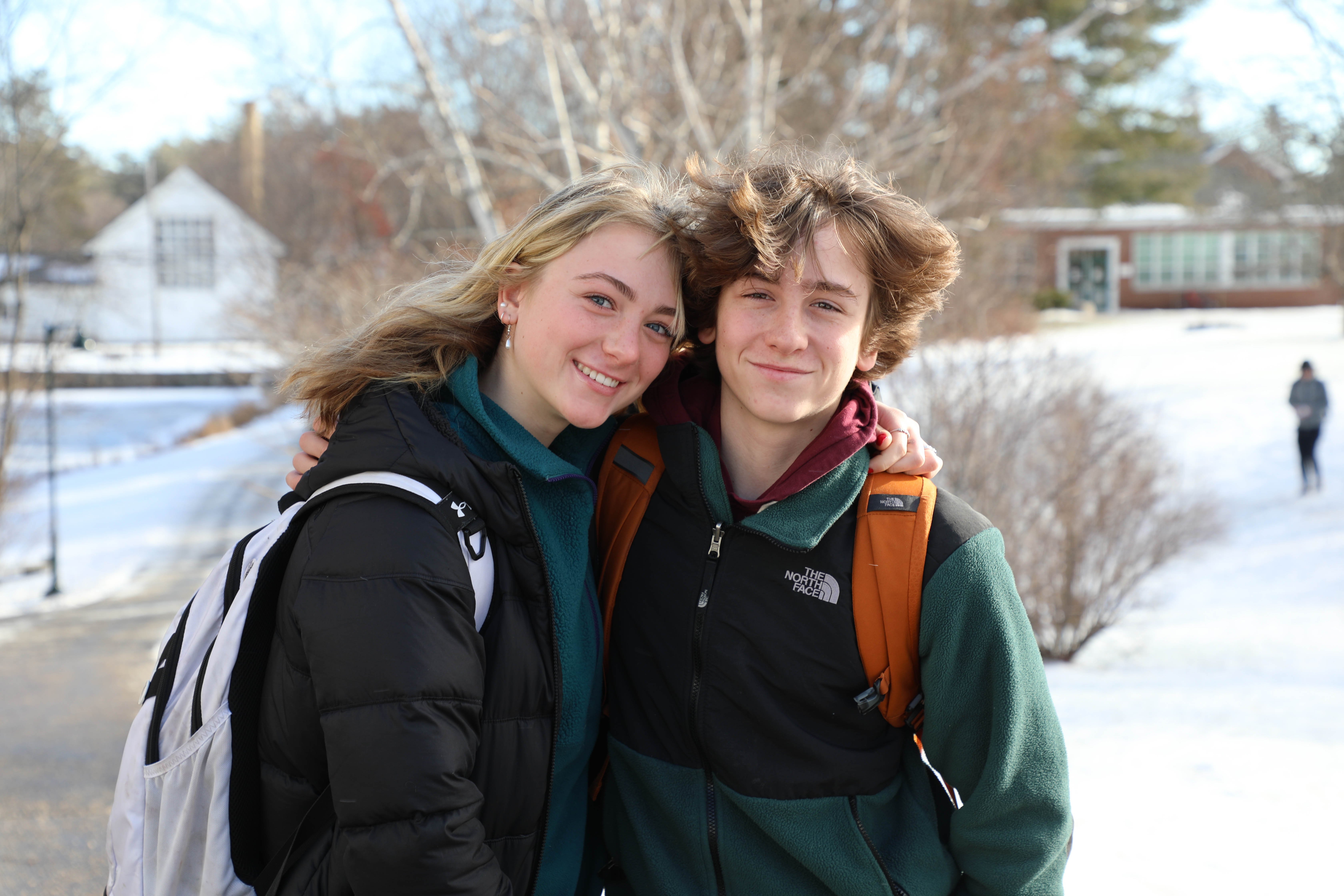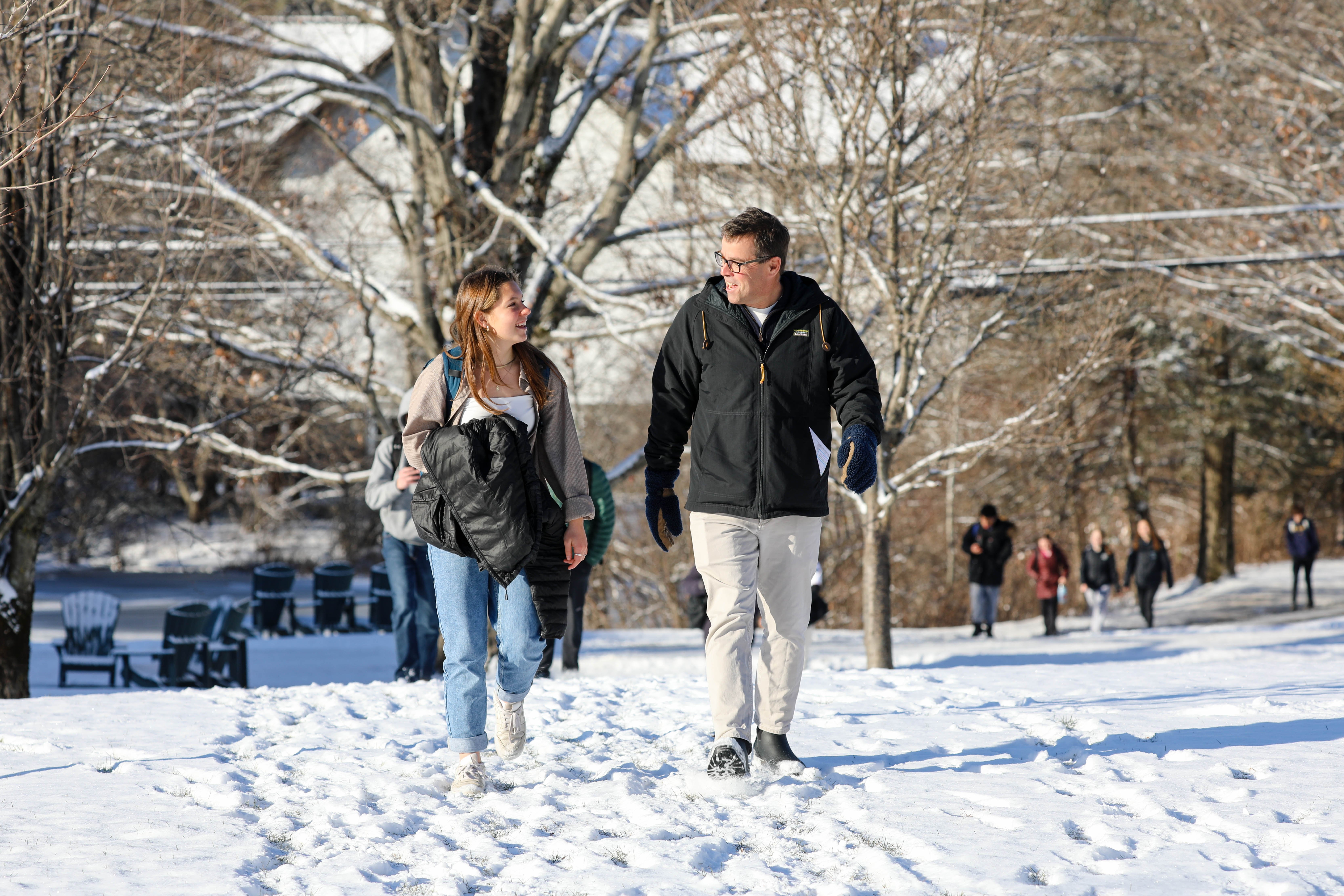Later this afternoon we will welcome students back from break for the heart of the winter term. The dining hall will gradually come to life, dorms will fill with hugs, stories from the past two weeks, and anticipation of what lies ahead. Moments like tonight, when we see our students joyously reconnecting with each other, stand in stark contrast to the realities of disconnect and mental health struggles facing so many.

A powerful morning of professional development with Samaritans Hope Suicide Prevention network brought to light the crisis of mental health in our country, and in the teenage community specifically. Loneliness, suicidal ideation, and mental health struggles are a part of the Proctor landscape among our students and our employees, just as they are in every school community around the country. Today’s training helped us become better adept at identifying individuals who are struggling and knowing how to proactively offer the support they need.

In 2018, we shared THIS blog post about how Proctor can serve as an antidote to loneliness. Its message rings as true today as it did almost five years ago. In it, we shared, “Proctor’s antidote to loneliness is not a single program or wellness initiative. It is an educational model whose foundation is grounded in community building at both the student and adult level.” From the moment students step onto campus, and into our lives, our work is to facilitate connection. Period. It happens on Wilderness Orientation, in small, family-style dorms, on teams and afternoon activities, in advisories, and through myriad other moments in a student’s life.

Kathryn, our facilitator from Samaritans this morning, shared a quote from author and activist Parker Palmer, “The human soul doesn't want to be advised or fixed or saved. It simply wants to be witnessed.” Palmer’s words serve as a simple reminder that the most powerful moments of connection for our students are not some grand, transformational event, but through the simple act of seeing them and accepting them for who they are.

Our work as we welcome students back to campus is to find those small, simple moments of witnessing others in the community: say hello by name when walking between classes, ask genuine questions about others to learn about their life’s experiences, slow down and engage in a meaningful way with those in our classes, teams, and dorms. We know mental health challenges are a part of every community's landscape, and we must work tirelessly to help those around us know they are loved, valued, and supported.
Learn more about Samaritans Hope and their work around suicide prevention and education HERE.








